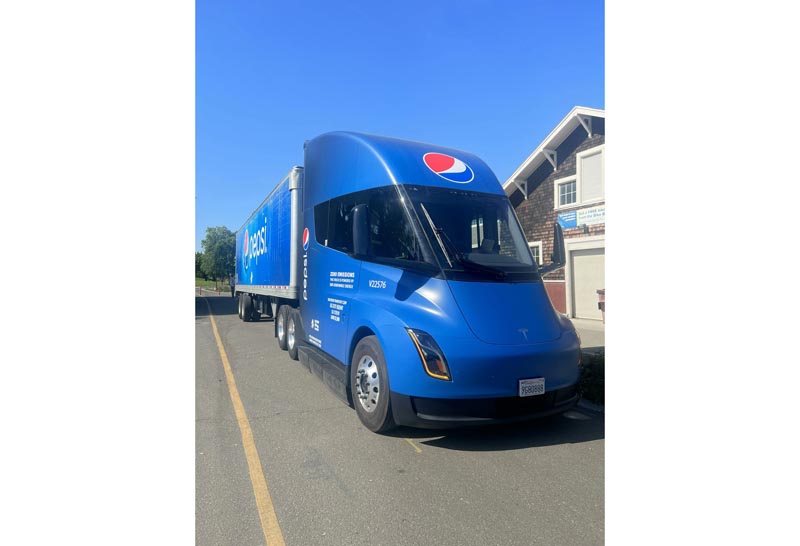Are Tesla’s electric heavy-duty trucks falling short of expectations? The latest recall notice for the Tesla Semi seems to suggest so. According to reports, the company may have produced only 36 electric trucks in the last three months, leaving many questions about its ability to meet production targets.
The Tesla Semi was first introduced in 2017, with plans to go into production in 2019. However, after four years of waiting, the Semi finally saw its first deliveries. But, it seems that the company’s production capabilities are still struggling to keep up with demand.
The recall notice for the Tesla Semi reveals that trucks produced between November 30, 2022, and March 15, 2023, will need a software update. This update addresses a software glitch that allows drivers to ignore the warning that the doors are not locked, which could pose a safety risk.
A total of 36 units are affected by the recall, which is consistent with Pepsi’s claim of owning 36 Tesla electric trucks. Pepsi’s Vice President of Supply Chain, Mike O’Connell, confirmed in February that they have 15 trucks in Modesto and 21 deployed in Sacramento.
This is the second recall event for the Tesla Semi, with the first happening in mid-March, affecting trucks produced between November 30, 2022, and February 28, 2023. While some of the electric heavy-duty trucks produced by Tesla may not be included in the recall notice, these numbers indicate that the company is still far from its initial goal of producing 50,000 trucks in North America by the end of 2024.
To meet the production targets, Tesla is investing heavily in the production of trucks, with $3.6 billion spent to expand the facilities at its Nevada Gigafactory. In March of this year, it was reported that a new production line in Nevada plans to produce five electric heavy-duty trucks per week.
However, even with the investment, CEO Elon Musk downplayed his earlier production targets for the Semi at a meeting in Texas last week. Musk stated that Tesla would not be able to start mass-producing the Semi until the end of next year, citing issues with battery supply.
The latest speed bump shows Tesla’s futuristic Semi may still be a way off. But once the factory whirs to life, Tesla could dominate the electric truck market. The question is whether legacy truck makers can catch up before it’s too late. If they’re not already in the rearview mirror by the time the Semi starts rolling in real numbers.
Nevertheless, Musk remains optimistic, saying that Tesla will do its best to meet the increasing demand for electrification in the future.
